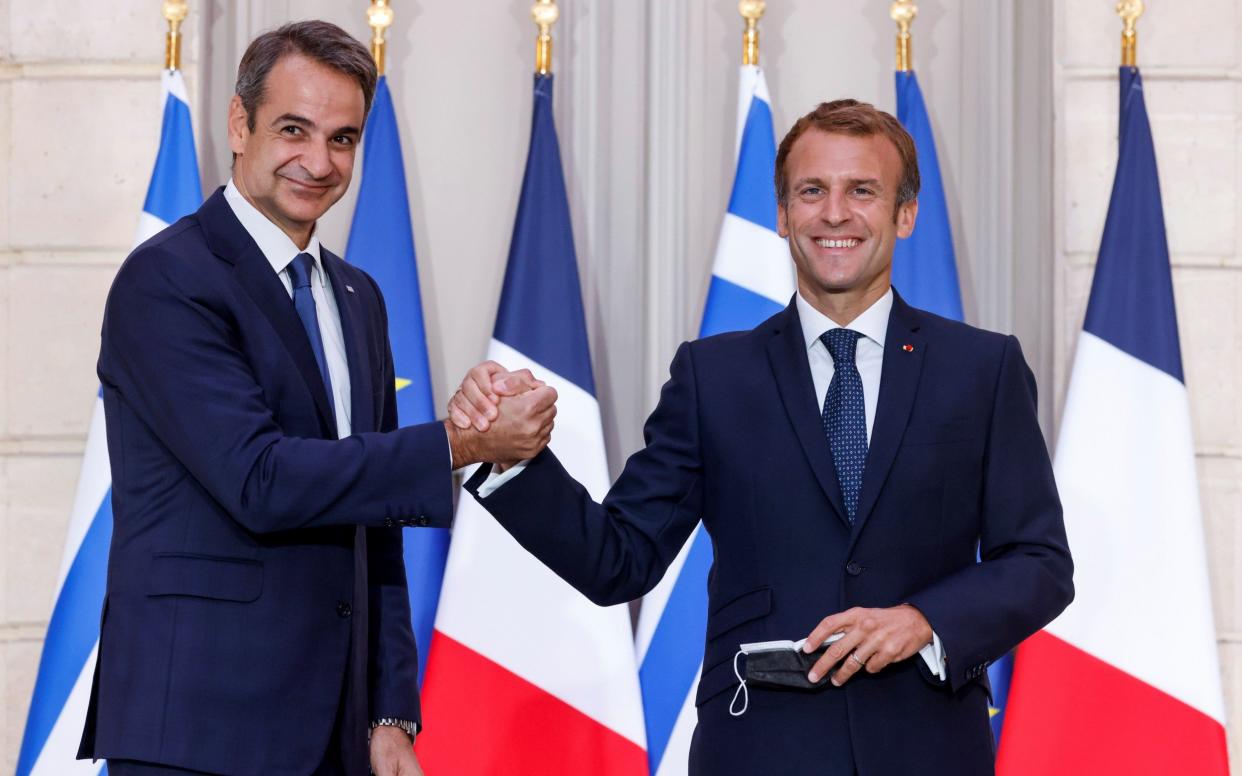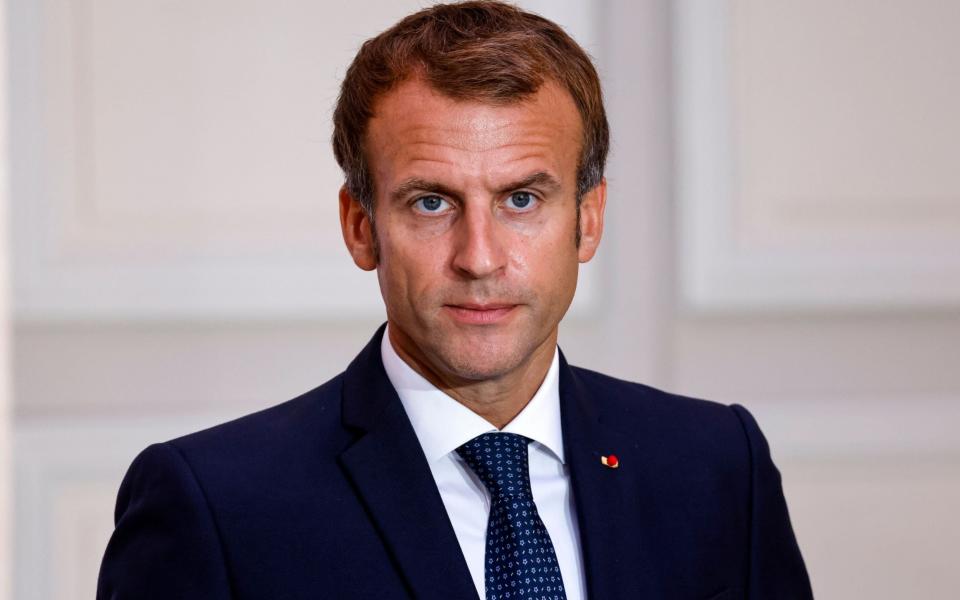France hails defence deal with Greece as leap towards 'European strategic autonomy'

France on Tuesday hailed "an audacious first step towards European strategic autonomy" as it signed a €3bn (£2.6bn) "strategic partnership" with Greece in the aftermath of a diplomatic row between France and Australia over a nuclear submarine deal.
The deal for at least three French frigates was signed in Paris, where French President Emmanuel Macron said that Europe must "stop being naive" about defending its interests and build its own military capacity.
The deal, which Greek Prime Minister Kyriakos Mitsotakis called "a historic day for Greece and France", came barely a week after France was frozen out of a €56bn submarine deal with Australia, which instead plumped for nuclear-powered submarines provided by the US and Britain as part of the new Aukus security partnership.
The shock U-turn sparked fury in France at being "stabbed in the back" by key allies and eventually led to a placatory statement from US President Joe Biden, who recognised "the importance of a stronger and more capable European defence, that contributes positively to transatlantic and global security and is complementary to Nato".
Mr Macron has long insisted that Europe needs to develop its own defence capabilities and no longer be so reliant on the US.
Breaking his silence for the first time since the submarine spat, Mr Macron seized the opportunity to urge for more European autonomy as the US increasingly "pivots" its interests towards China and the Indo-Pacific.
"The Europeans must stop being naive," said the French president. "When we are under pressure from powers, which at times harden (their stance), we need to react and show that we have the power and capacity to defend ourselves. Not escalating things, but protecting ourselves."

But he insisted: "This isn't an alternative to the United States alliance. It's not a substitution, but to take responsibility of the European pillar within Nato and draw the conclusions that we are asked to take care of our own protection."
The loss of the submarine deal struck a hammer blow not just to France’s defence industry, but also its attempts to steer a third way in the Indo-Pacific between the US and China.
However, Mr Macron insisted that the US-Australia pact would "have no effect" on its strategic course.
"We have one million fellow citizens who live in this region, and over 8,000 soldiers deployed there," he said, referring to France's presence through overseas territories such as New Caledonia and French Polynesia.
Under Tuesday's agreement, Athens agreed to buy three frigates with an option to buy a fourth for about €3bn, said Greek government officials.
The accord, part of a broader strategic military and defence cooperation pact, comes after Athens had already ordered some 24 Dassault-made Rafale fighter jets this year, making it the first EU country to buy the fighter jet.
"This will tie us for decades," said Mr Mitsotakis. "This opens the door to the Europe of tomorrow that is strong and autonomous, capable of defending its interests."

Mr Mitsotakis called Athens' decision to buy the Belharra ships "a sign of confidence" in France's defence industry, against competition notably from the American group Lockheed Martin.
He said the French deal would not affect a defence cooperation agreement under discussion between Greece and the US.
The deal between Paris and Athens can be seen as a reaction to the Aukus accord between Britain, the US and Australia and a tilt toward a common European defence policy, said Angelos Chryssogelos, an associate fellow at Chatham House in London.
The Greek government had initially been expected to buy US-made warships before opting for the French frigates.
“From the Greek perspective, the Aukus deal signaled that the US is committed more and more to the Indo-Pacific region,” he told The Telegraph.
“Traditionally, we have relied on the US as a security umbrella to guarantee that Greece and Turkey will never go to war.
“But it dawned on Greece, as it did for other European countries, that you can’t rely on the US for a long-term presence.”
There is speculation in the Greek press that to assuage France’s anger over the Aukus submarine deal, the Americans threw them a bone by granting them the frigate contract with Greece.
“The Greek government narrative is that this should be seen through the framework of European strategic autonomy, the idea that Europeans have to do more in terms of defence,” said Dr Chryssogelos. “Both France and Greece will be able to present this as the nucleus of joint European defence capabilities.
“Given that there is a political vacuum in Germany after the elections, it is also a golden opportunity for France to reassert a leadership role.”
The France-Greece deal follows recent tensions between Greece and Turkey.
However, Mr Macron insisted the accord did not target a country specifically, but that as the outer border of the European Union, Greece needed to be protected.
"I don't get the feeling that in the summer of 2020 it was Greece that was bellicose in the eastern Mediterranean," Mr Macron said, alluding to Turkish actions in the region.
"As Europeans, it is our duty to show solidarity with members states. It is legitimate that we commit to equipping it so it can ensure its territorial integrity is respected and that we commit to cooperating to protect it in case of intrusions, attacks or aggression."
On Sunday, President Tayyip Erdogan of Turkey - a Nato member - said he still intended to buy a second batch of S-400 missile defence systems from Russia, a move that could trigger fresh US sanctions.
Washington says the S-400s pose a threat to its F-35 fighter jets and to Nato's broader defence systems. Turkey says it was unable to procure air defence systems from any Nato ally on satisfactory terms.
"In the future, nobody will be able to interfere in terms of what kind of defence systems we acquire, from which country at what level," Mr Erdogan told CBS.
"Nobody can interfere with that. We are the only ones to make such decisions."

 Yahoo News
Yahoo News 
